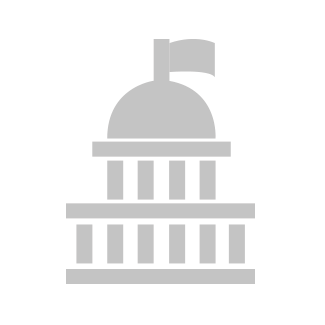Careers
“A data scientist is a person who should be able to leverage existing data sources, and create new ones as needed in order to extract meaningful information and actionable insights. These insights can be used to drive business decisions and changes intended to achieve business goals… ‘The Perfect Data Scientist’ is the individual who is equally strong in business, programming, statistics, and communication.” [1]
“Data Scientists identify complex business problems whilst leveraging data value. They work as part of a multidisciplinary team with data architects, data engineers, analysts and others.” [2]
“Universities can hardly turn out data scientists fast enough. To meet demand from employers, the United States will need to increase the number of graduates with skills handling large amounts of data by as much as 60 percent.” [3]
[1] From: What Is Data Science, and What Does a Data Scientist Do?
[2] From: Data Scientist Career Pathways in Government
[3] From: Data Science: The Numbers of Our Lives, The New York Times
Data Science Careers in the Public & Nonprofit Sector
This page includes some examples of career paths and professional opportunities at the intersection of data science, public policy, and nonprofit sector work. It is not meant to be an active list of the most current opportunities, but rather provide some examples of how to marry your interests in technology, analytics, and public service for a meaningful career.
CONTENT:
- Data Science Careers in the Public & Nonprofit Sector
- Careers
- Data Science Communities
- Professional Training
Careers
Nonprofits, governments, foundations, and think-tanks are actively seeking people with data science training to work as policy analysts, evidence-based managers, chief data officers, or evaluation specialists.
The UK Government has put together a nice overview on data science career paths in government.
A new section of USA Jobs highlights data science career paths in the US Federal Government:
Data Science Roles in Federal Government
Federal Government Examples
- Inside Obama’s Stealth Startup [ link ]
- Why I Joined the US Digital Services [ link ]
- Five Examples of How Federal Agencies Use Big Data [ link ]
- AI Initiatives in the Federal Government [ link ]
Local Government Examples
- A Day in the Life of a Chief Data Officer [ link ]
- Data-Driven City Management [ MIT case study ]
Graduate Student Fellowships:
- Data Incubator [ fellowship overview ]
- Data Science for the Public Good [ link ]
- Lazer Lab at Northwestern [ link ]
Job Growth for Data Programming
- Analyst Positions [ link ]
- Current: [ R Users & here ]
- Blog [ Freelance R Programmers ]
Example Job Boards:
- Tech Jobs for Good [ link ]
- Tech Association for Grantmakers [ link ]
- Indeed + “R Statistics” [ link ]
- R Users [ link ]
- Idealist.org [ link ]
- Zip Recruiter [ link ]
- USA Jobs [ github ] [ data science ]
Data Science Communities
R Communities
Conferences [ link ]
R Open Science [ link ]
R Open Government [ link ]
R Ladies [ link ]
Professional Networks
Ford Foundation: Public Interest Technology [ link ]
Bloomberg Foundation: What Works Cities [ link ]
GitHub’s Government Team [ link ]
Nonprofit Open Data Collective [ link ]
Data Journalists, Bloggers & Civic Groups
Trend CT [ link ] [ github ] [ style guide ]
Todd Schneider [ blog ] [ github ]
I Quant NY [ blog ]
ChartsNThings: A Blog by the NYT Graphics Dept [ link ]
Data for Democracy [ link ]
Justice Media Co-Lab at Boston University [ overview document ] [ stories ]
Blogs and Listservs
R-Bloggers [ link ]
R Weekly [ link ]
Stack Overflow [ link ]
Flowing Data [ link ]
Data Science Podcasts
Data Points by GovEx [ link ]
Partial Derivative [ link ]
DMV Nation [ link ]
Becoming a Data Scientist [ link ]
Data Stories [ link ]
Talking Machines [ link ]
Not So Standard Deviations [ link ]
Data Skeptic [ link ]
More Or Less [ link ]
Linear Digression [ link ]
R-Podcast [ link ]
Professional Training
Example Data Science Courses in Schools of Public Affairs and Journalism
- Arizona State: [ Data Science for the Social Sector ] [ Data-Driven Management for Public Organizations ]
- Brigham Young: [ Data Science for Public Management ] [ Data Viz ]
- Carleton University, Canada: [ Big Data & Society ]
- Carnegie Mellon: [ Data Analytics Course ]
- Colby College: [ Data Analysis ] and [ Statistics ]
- Georgetown: Data Science for Public Policy
- Hertie School of Governance: [ Data Analysis ] [ Collaboration ] [ Text Analysis ]
- SUNY Albany: [ PhD Seminar in Social Network Analysis ]
- Syracuse iSchool: [ Applied Data Science ]
- University of Washington: [ course ]
- Rutgers School of Communications [ Katya Ognyanova’s Courses ]
Degree Programs
- Arizona State University: MS in Program Evaluation and Data Analytics
- Carnegie Mellon: Joint PhD in Public Policy and Machine Learning
- Georgetown: Data Science and Public Policy
- University of Chicago: MS in Computational Science and Public Policy
- University of Southern California: Civic Tech USC
Training Opportunities in Government
- Datapolitan [ link ]
- San Francisco [ link ]
- New York [ link ]
- Department of Commerce [ link ]
- Health and Human Services [ link ]
